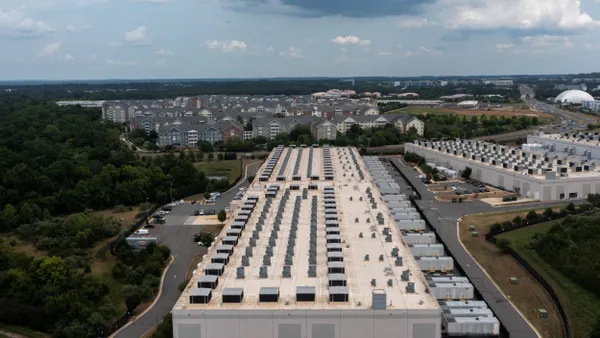Dive Brief:
- The Kauai Island Utility Cooperative (KIUC) has signed a deal with SolarCity to purchase power from what the companies claim is the first fully-dispatchable utility-scale solar facility in the U.S., according to a press release.
- The dispatchable solar plant has a 52 MWh battery system that will store energy generated during the day and allow it to feed up to 13 MW of electricity back onto the grid during the evening peak.
- Under the 20-year power contract, KIUC will pay SolarCity 14.5 cents/kWh, less than the cost of conventional generation in Hawaii, and slightly more than the cost of power from the co-op's other exisiting solar farms.
Dive Insight:
In the power industry, Hawaii is commonly considered a "test case" for new renewable energy technologies because its power prices — the highest in the nation — have made cutting-edge resources cost-effective on the islands before they reach that point on the mainland.
In particular, the rapid proliferation of rooftop solar — a development that many utilities across the country are dealing with today — was previewed by an earlier boom in the resource's growth in Hawaii, leading the head of the PUC to call the state a "postcard from the future" to the mainland.
The announcement of the SolarCity-KIUC project is a step toward the realization of a long-standing theory in the renewable energy sector: As energy storage becomes cost effective on a large scale, utilities will be able to store vast amounts of renewable generation in giant batteries, releasing that power to the grid when it is most needed.
The goal of the new solar-plus-storage facility, KIUC said, is to "'shave' the amount of conventional power generation needed to meet the evening peak, which lasts from 5 p.m. to 10 p.m." That idea has thus far been confined to smaller projects at commercial facilities or specially-designed microgrids, but the KIUC project is reportedly the first such project at utility-scale, and could be an indication of similar utility-scale solar-plus-storage systems to come.
KIUC CEO David Bissell said his co-op had been assessing storage options for the past two years and price has "always been the biggest challenge." He called the SolarCity project a "breakthrough ... on technology and price" that has finally made utility-scale storage cost-effective for KIUC.











